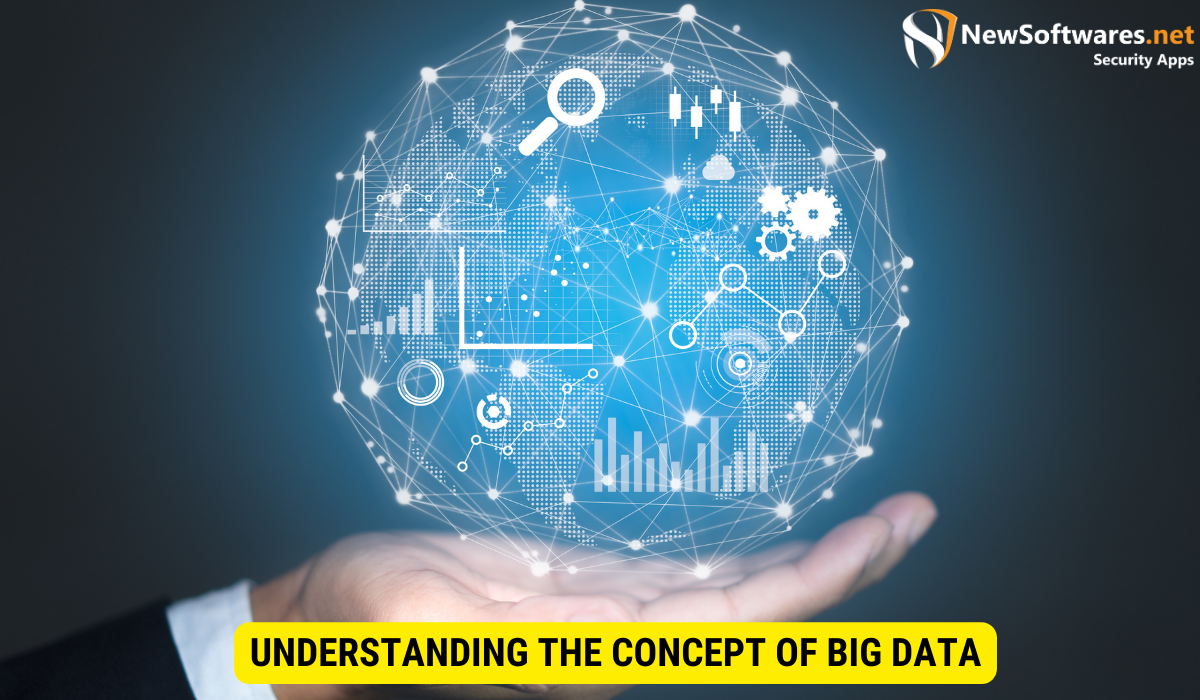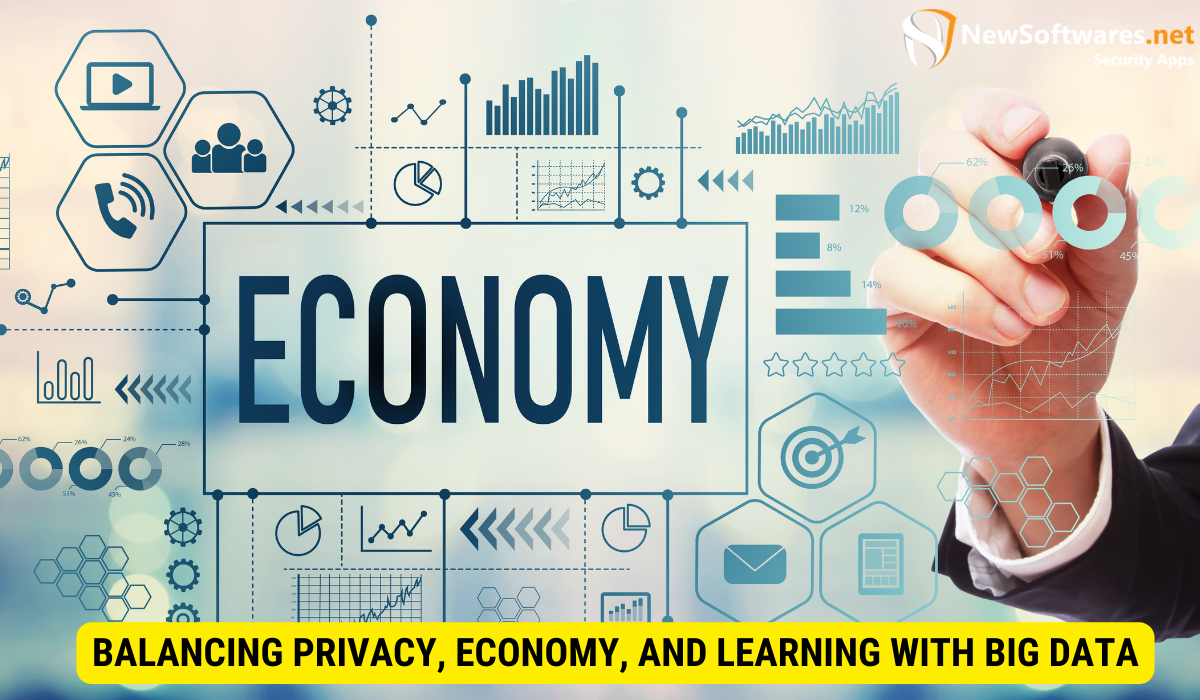The trade-offs between privacy and the economy/learning in terms of big data involve balancing the benefits of data-driven insights and innovation against the risks of privacy infringement and potential misuse of personal information.
Big data, with its vast potential for generating insights and driving innovation, has become an essential tool in the modern digital landscape. However, as with any powerful technology, there are trade-offs to be considered. In particular, the intersection of privacy, economy, and learning presents a complex set of challenges and opportunities. Together, we will explore the concept of big data, delve into the impact on privacy and economy, explore its role in education, and discuss strategies for striking a balance between these factors.
Understanding the Concept of Big Data

Before diving into the trade-offs, it’s essential to grasp the concept of big data. Big data refers to the exponentially growing datasets that are too complex and large to be effectively handled using traditional data processing methods. It encompasses vast amounts of information collected from various sources, including social media platforms, internet browsing activities, and sensor data from connected devices.
Big data has become a buzzword in recent years, but what exactly does it mean? In simple terms, big data refers to the massive amount of information that is generated and collected every day. This data is often unstructured, meaning it doesn’t fit neatly into traditional databases or spreadsheets. Instead, it comes in various formats, such as text, images, videos, and social media posts.
When someone mentions big data, they are referring to datasets with three defining characteristics: volume, velocity, and variety. Volume refers to the sheer magnitude of data generated daily, measured in terabytes and petabytes. It’s estimated that by 2025, the world will produce 463 exabytes of data every day. To put that into perspective, one exabyte is equivalent to one billion gigabytes!
Velocity represents the speed at which data is produced. With the advent of the Internet of Things (IoT) and the proliferation of connected devices, data is being generated in real-time. This real-time data requires immediate analysis and decision-making to derive meaningful insights and take appropriate actions.
Variety pertains to the diverse range of data formats. In addition to structured data, such as numbers and text, big data includes unstructured data like images, videos, and social media posts. This variety of data poses unique challenges for organizations, as they need to develop new tools and techniques to extract valuable insights from these diverse sources.
Defining Big Data
When it comes to defining big data, there are various perspectives. Some experts define it based on the 3Vs (volume, velocity, and variety), while others emphasize the importance of veracity and value. Veracity refers to the accuracy and reliability of the data, while value relates to the potential benefits that can be derived from analyzing the data.
Regardless of the specific definition, big data has become a critical asset in today’s digital age. It has the power to revolutionize industries and transform the way we live and work. From predicting consumer behavior and optimizing supply chains to improving healthcare outcomes and combating climate change, big data has immense potential to drive innovation and create positive societal impact.
The Role of Big Data in Modern Society
The applications of big data are far-reaching and impact various sectors of society. In the business world, big data analytics is used to gain insights into customer preferences, optimize marketing campaigns, and improve operational efficiency. It enables companies to make data-driven decisions and stay ahead of the competition.
In the healthcare industry, big data is revolutionizing patient care. By analyzing large datasets, healthcare providers can identify patterns and trends that help in early disease detection, personalized treatment plans, and predicting outbreaks. Big data also plays a crucial role in genomics research, enabling scientists to analyze vast amounts of genetic data and develop targeted therapies.
Big data is also transforming the way we interact with technology. Virtual assistants like Siri and Alexa rely on big data to understand and respond to user queries. Social media platforms use big data algorithms to personalize our news feeds and recommend relevant content. In transportation, big data is used to optimize routes, reduce congestion, and improve the overall efficiency of public transportation systems.
However, the use of big data raises concerns about privacy and its economic implications. With the collection of vast amounts of personal information, there is a need for robust data protection measures to ensure the privacy and security of individuals. Additionally, the economic implications of big data are still being explored, with debates surrounding data ownership, intellectual property rights, and the potential for monopolistic practices.
The Intersection of Privacy and Big Data
Privacy in the digital age has become increasingly important as personal information is shared, stored, and analyzed extensively. Big data, with its capability to collect and analyze vast amounts of personal data, poses challenges to privacy and raises important ethical considerations.
The Importance of Privacy in the Digital Age
In an era of pervasive digital surveillance, protecting individuals’ privacy is of utmost importance. Privacy ensures individuals have control over their personal information, prevents unauthorized access, and safeguards against potential misuse. However, the collection and analysis of big data can often infringe upon individual privacy rights, leading to concerns over data breaches and unauthorized access.
How Big Data Impacts Individual Privacy
The collection and analysis of big data often involve tracking individuals’ online activities, including browsing habits, location data, and social media interactions. This data can be used to create detailed profiles and target individuals with tailored advertisements or influence their opinions. While this may enhance the user experience and drive economic value, it raises questions about the extent of consent, data ownership, and the potential for discrimination or manipulation.
The Economic Implications of Big Data
Big data has emerged as a significant driver of economic growth and innovation. Its potential to uncover valuable patterns, trends, and insights has transformed various industries. However, along with the economic benefits, there are potential risks that must be carefully considered.
Big Data as an Economic Driver
The application of big data has revolutionized business operations, allowing companies to optimize processes, improve customer satisfaction, and develop data-driven strategies. By analyzing large datasets, businesses can make informed decisions, identify new market opportunities, and enhance operational efficiency. Additionally, big data analytics has the potential to drive innovation and contribute to economic growth.
Potential Economic Risks of Big Data
While big data offers significant economic potential, it also presents risks that must be managed. One key concern is the concentration of data in the hands of a few dominant players, leading to potential monopolistic behaviors and unequal distribution of economic benefits. Furthermore, the reliance on algorithms and automated decision-making fueled by big data may result in unintended biases, impacting competition and fairness.
Big Data in the Realm of Education and Learning
The education sector is not immune to the influence of big data. Educational institutions are increasingly leveraging big data analytics to enhance teaching and learning processes, personalize education, and improve outcomes.
The Use of Big Data in Educational Institutions
Big data analytics enables educational institutions to collect and analyze a wealth of information, ranging from student performance data to learning preferences and behavior patterns. This data can inform decision-making, identify areas for improvement, and help tailor educational experiences to the needs of individual students. Additionally, big data can facilitate the identification and prediction of at-risk students, enabling timely interventions and support.
The Impact of Big Data on Learning Processes
The integration of big data analytics with learning processes has the potential to revolutionize teaching and learning methods. With access to real-time student performance data, educators can adapt their teaching strategies, provide personalized feedback, and identify areas where additional support is needed. This personalized approach holds the promise of enhancing student engagement, improving learning outcomes, and bridging educational gaps.
Balancing Privacy, Economy, and Learning with Big Data

As the use of big data continues to expand, it is crucial to strike a balance between privacy concerns, economic benefits, and educational advancements. Achieving this delicate balance requires a comprehensive approach that addresses the ethical and legal considerations surrounding big data usage.
The Delicate Balance: Privacy vs. Progress
Protecting privacy while harnessing the power of big data requires transparent data practices, strong data protection regulations, and informed consent frameworks. Respecting individuals’ rights and ensuring data privacy should be at the core of big data initiatives. Simultaneously, fostering innovation and economic growth requires encouraging responsible data usage, promoting data sharing for societal benefits, and supporting safeguards against potential risks.
Strategies for Managing Trade-offs in Big Data Usage
To manage the trade-offs between privacy, economy, and learning, organizations and policymakers can implement various strategies. These include implementing strong data governance frameworks, adopting privacy-enhancing technologies, investing in data security measures, and promoting data literacy and awareness. Embracing ethical guidelines and principles that prioritize transparency, accountability, and fairness will be crucial in navigating the complex landscape of big data and its impact on privacy and economy.
Key Takeaways
- Big data offers significant potential for economic growth, innovation, and personalized learning experiences.
- The use of big data raises concerns about privacy infringement, data ownership, and potential discrimination.
- Responsible data usage, transparent practices, and strong data protection regulations are essential for striking a balance between privacy, economy, and learning.
- Educational institutions can leverage big data analytics to enhance teaching strategies, improve student outcomes, and identify at-risk students.
- A comprehensive approach, including data governance frameworks and privacy-enhancing technologies, is needed to manage the trade-offs and mitigate potential risks associated with big data.
FAQs
What is big data and how is it significant?
Big data refers to large, complex datasets that traditional data processing can’t handle, playing a crucial role in driving insights and innovation across various sectors.
How does big data impact individual privacy?
Big data raises privacy concerns as it involves collecting and analyzing vast amounts of personal information, leading to potential risks of unauthorized access and misuse.
What are the economic benefits of big data?
Big data drives economic growth by enabling businesses to make informed decisions, optimize operations, and innovate, but it can also lead to data concentration and monopolistic practices.
How is big data used in education and learning?
In education, big data analytics helps in personalizing learning experiences, improving teaching strategies, and identifying at-risk students for timely interventions.
What strategies can manage the trade-offs in big data usage?
Strategies include implementing strong data governance frameworks, adopting privacy-enhancing technologies, and promoting data literacy and awareness.
Conclusion
In the realm of big data, the primary challenge lies in balancing the immense potential for economic growth and personalized learning with the critical need to protect individual privacy. This necessitates a comprehensive approach, including responsible data usage, robust privacy safeguards, and ongoing ethical considerations.
